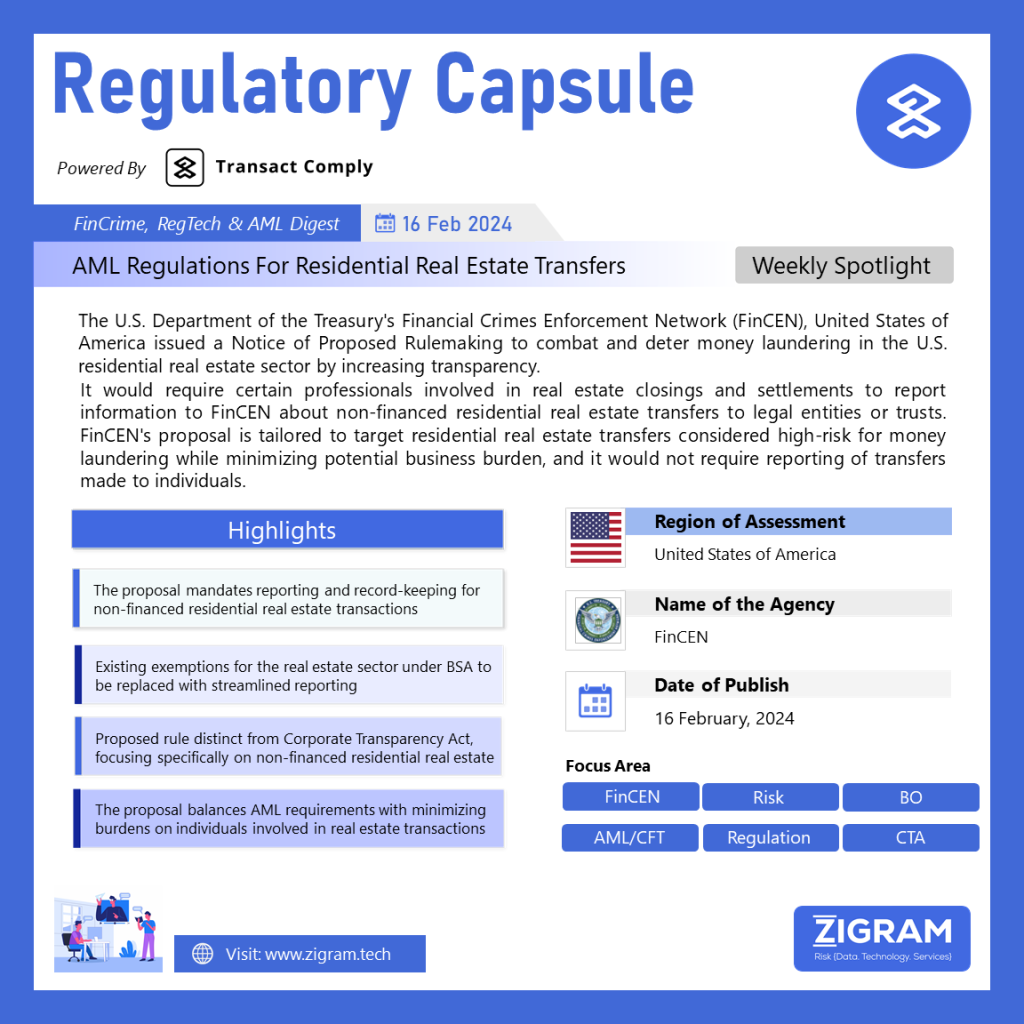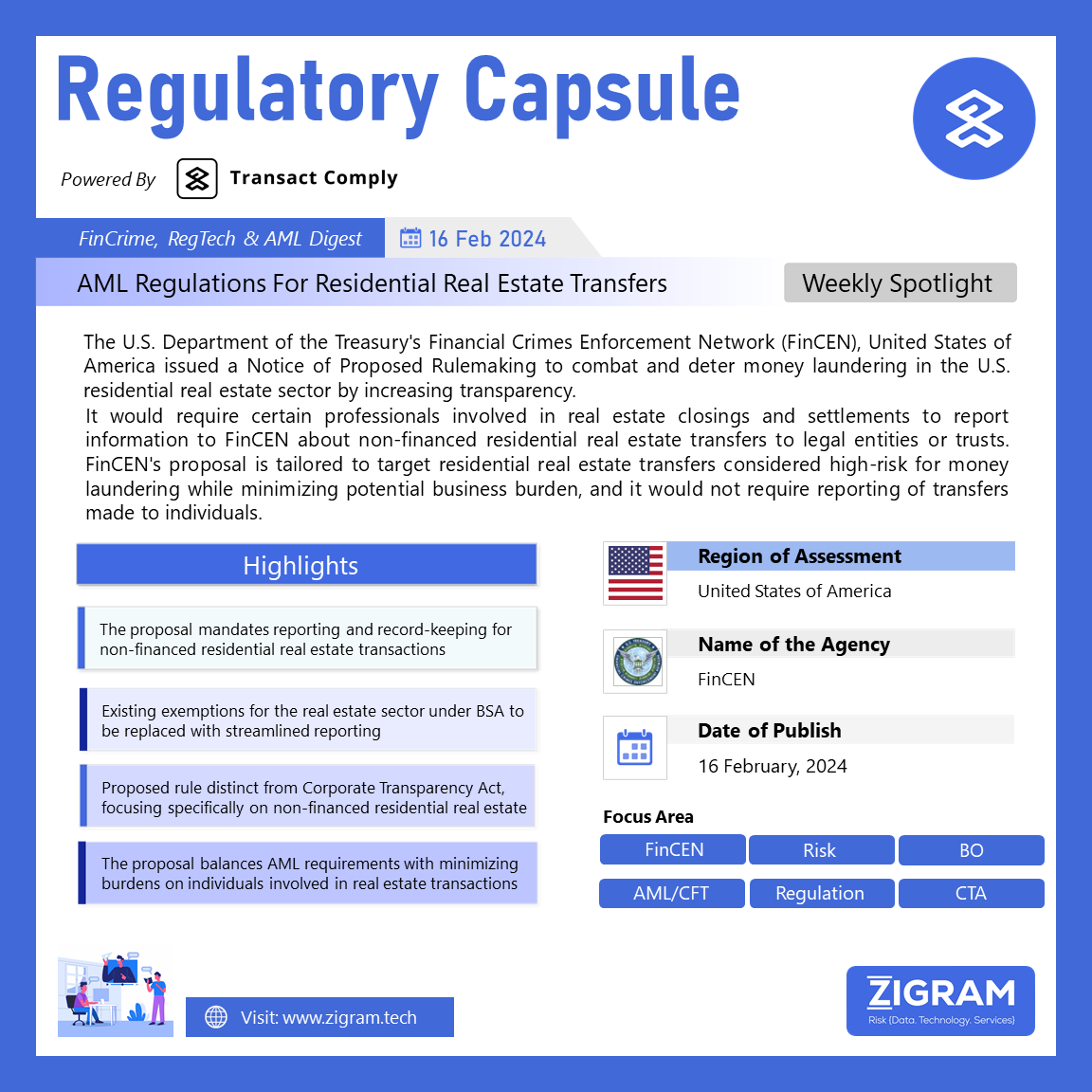Published Date:
Regulation Name: Anti-Money Laundering Regulations for Residential Real Estate Transfers
Regulatory Update Date: 16 February 2024
Country: United States
Agency: Financial Crimes Enforcement Network (FinCEN)
The U.S. Department of the Treasury’s Financial Crimes Enforcement Network (FinCEN) proposed a rule to combat money laundering in the U.S. residential real estate sector. This rule aims to increase transparency by requiring certain individuals involved in real estate closings and settlements to report and maintain records on non-financed transfers of residential real property to specific legal entities and trusts nationwide. The reports will assist law enforcement and national security agencies in addressing illicit finance vulnerabilities and curbing the anonymous laundering of illicit proceeds through property purchases, which threaten economic and national security.
For years, Treasury has recognized the risks posed by the abuse of the U.S. real estate market by criminals and corrupt officials to launder money. While FinCEN previously exempted individuals involved in real estate transactions from comprehensive regulation under the Bank Secrecy Act (BSA), recent findings from geographic targeting orders (GTOs) highlighted the need for increased transparency and regulation. Thus, the proposed rule seeks to impose anti-money laundering (AML) requirements on persons involved in real estate closings and settlements, aligned with the BSA’s directive.
Acknowledging the burdens traditional AML programs may impose, FinCEN proposes a streamlined reporting framework to minimize unnecessary burdens while enhancing transparency. This framework includes a tailored reporting requirement for high-risk activities, focusing on transaction-specific reporting. While certain information may overlap with the Corporate Transparency Act’s (CTA) beneficial ownership reporting requirements, the proposed rule serves a distinct purpose by targeting specific activities deemed high-risk.
Under the proposed rule, certain persons involved in real estate closings and settlements would be required to file and maintain records of a streamlined version of a Suspicious Activity Report (SAR), referred to as a “Real Estate Report.” The determination of reporting persons would follow a cascading approach based on the function performed in the real estate transaction, aiming to minimize burdens and ensure comprehensive reporting. Real estate professionals would also have the option to designate a reporting person from the cascade by agreement, providing flexibility in compliance.
Overall, the proposed rule aims to enhance transparency in the U.S. residential real estate market to protect economic and national security interests. By requiring reporting on identified non-financed transfers of residential real property to specific legal entities and trusts, FinCEN seeks to deter money laundering activities and safeguard the integrity of the real estate sector.
- #FinCEN
- #AML
- #MoneyLaundering
- #RealEstate
- #NationalSecurity
- #EconomicSecurity
- #Regulation
- #Compliance
- #FinancialCrime
- #BeneficialOwnership
- #SAR
- #LegalEntities


